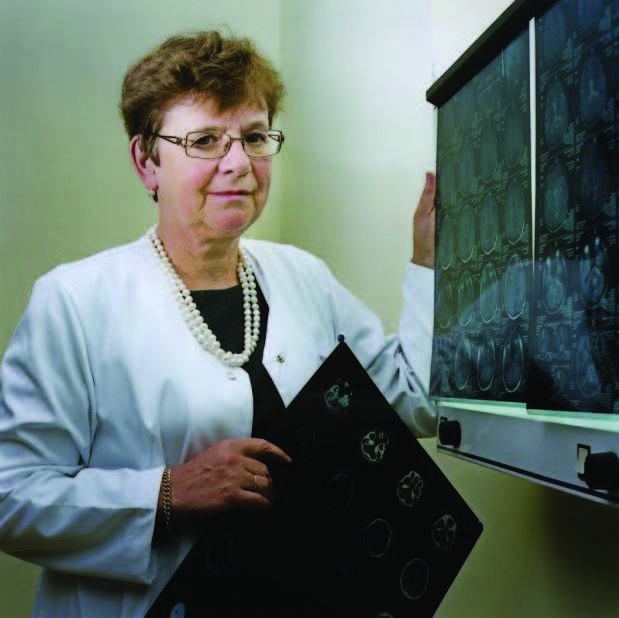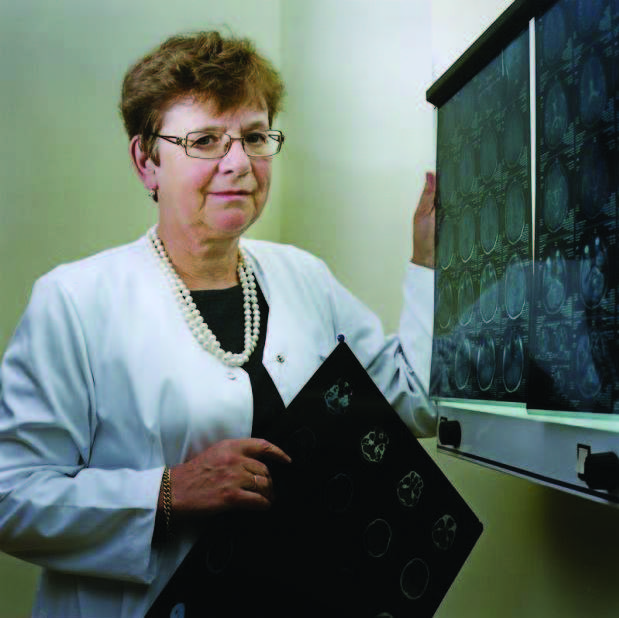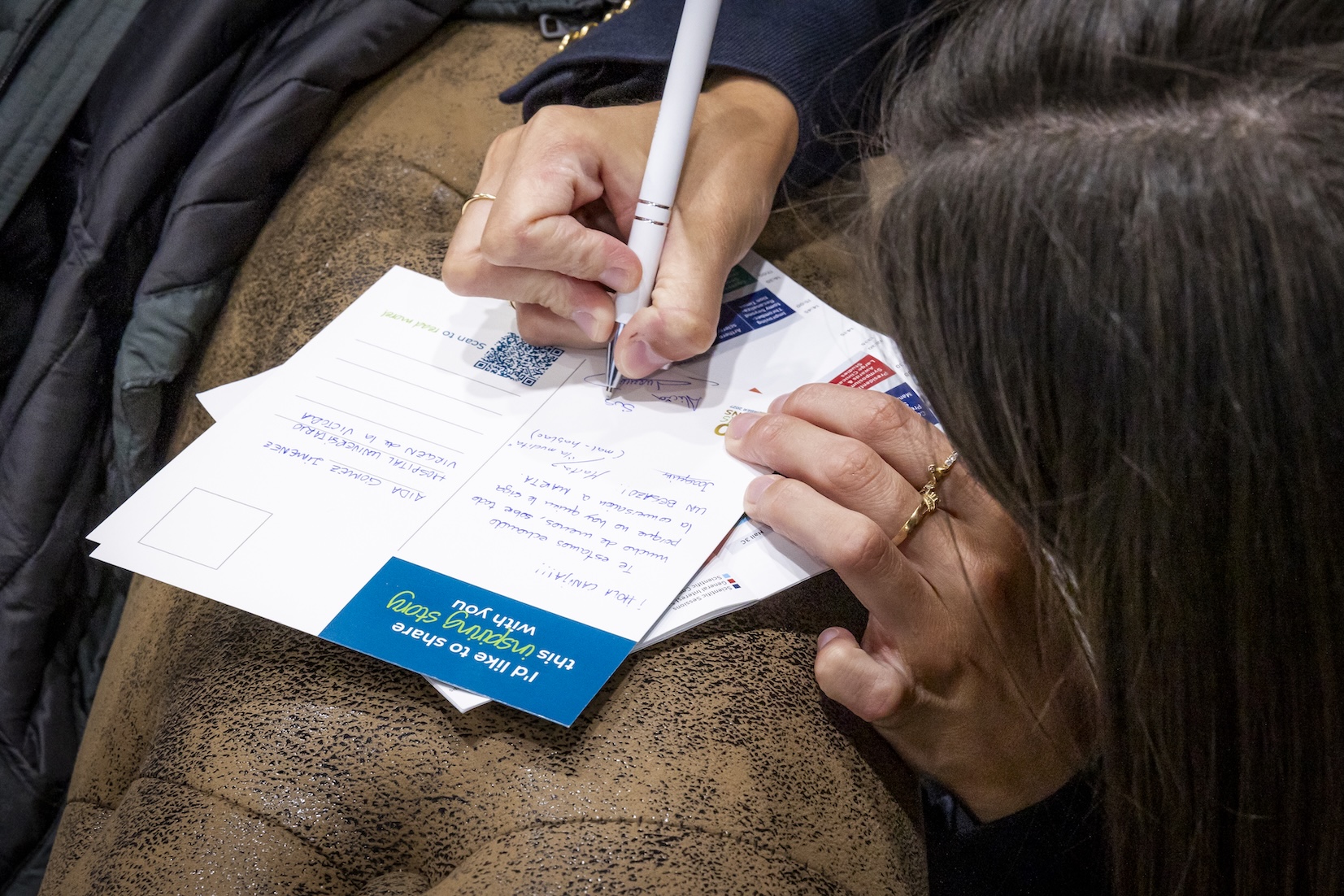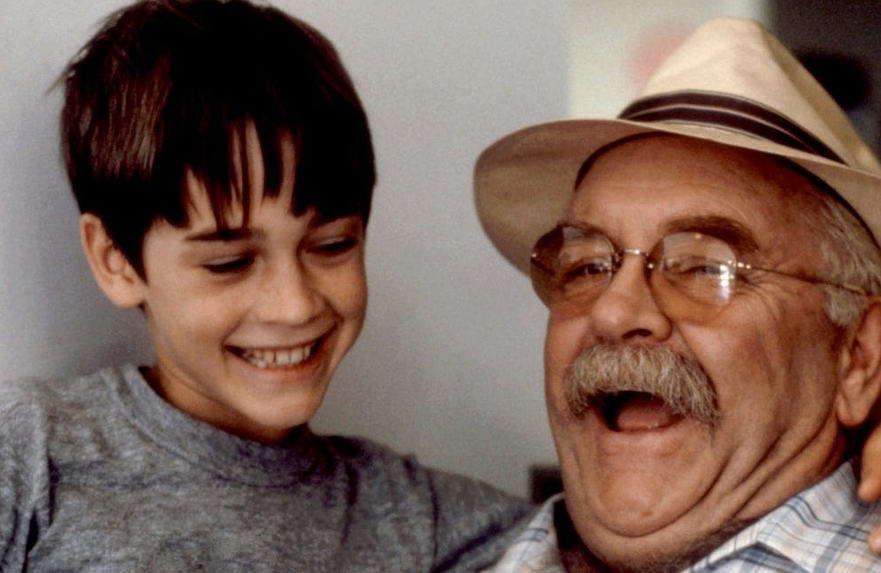Το επίπεδο φροντίδας για τα φροντίδα αγγειακού εγκεφαλικού επεισοδίου στην Πολωνία έχει βελτιωθεί σημαντικά τα τελευταία χρόνια. Υπό την καθοδήγηση ανθρώπων όπως η Καθ. Anna Członkowska και άλλων, ο αριθμός των κέντρων αγγειακό εγκεφαλικό επεισόδιο αυξήθηκε από λίγους το 2010 σε περίπου 170 σήμερα.|

Στην Πολωνία δεν εστίασαν μόνον να καταφέρουν περισσότερα, επικεντρώθηκαν και να τα κάνουν καλύτερα. Στις περισσότερες χώρες του κόσμου που έχουμε αναλύσει, διαπιστώσαμε ότι ήταν σε θέση να αυξήσουν το ποσοστό όλων των ασθενών με αγγειακό εγκεφαλικό επεισόδιο σε εθνικό επίπεδο, οι οποίοι λαμβάνουν θεραπεία επανασηραγγοποίησης κατά μέσο όρο 1% ετησίως. Η Πολωνία έχει κατά μέσο όρο περίπου 2% ετησίως από το 2010 έως το 2015! Η φροντίδα των ασθενών μετατράπηκε, με ορισμένα νοσοκομεία αναφοράς να έχουν πλέον μέσους χρόνους DTN 45 λεπτών.
Ωστόσο, μετά από αυτή την αρχική έκρηξη ενθουσιώδους δραστηριότητας, η δυναμική έχει επιβραδυνθεί κάπως από το 2015 και τα νούμερα φάνηκε να έχουν σταθεροποιηθεί σε κάποιο βαθμό. Όλοι γνωρίζουμε ότι σε μια δίαιτα, τα τελευταία δύο κιλά προς το βάρος του στόχου σας είναι πάντα τα πιο δύσκολα να χαθούν και ίσως αυτό είναι το ίδιο για τη φροντίδα αγγειακού εγκεφαλικού επεισοδίου στην Πολωνία.
Θα πρέπει αυτά τα πολωνικά νοσοκομεία που βρίσκονται τώρα κατά μέσο όρο σε χρόνους DTN περίπου 45 λεπτών να ενοποιηθούν ή θα πρέπει να ασκήσουν περαιτέρω πίεση για να διαπεράσουν το φράγμα των 30 λεπτών, όπως για παράδειγμα η πλειονότητα των νοσοκομείων στη γειτονική χώρα τους, την Τσεχική Δημοκρατία;
15 λεπτά μπορεί να ακούγονται ασήμαντα, αλλά σύμφωνα με μια δημοσίευση των Saver et. Al (2013), κάθε 15 λεπτά που εξοικονομούνται στον χρόνο θεραπευτική αντιμετώπιση ενός ασθενής με αγγειακό εγκεφαλικό επεισόδιο αντιπροσωπεύουν μια απόλυτη μείωση της θνησιμότητα κατά 4%, μια μείωση της συμπτωματικής ICH κατά 4% και μια βελτιωμένη πιθανότητα ανεξαρτησίας κατά το εξιτήριο κατά 4%. Με άλλα λόγια, για έναν ασθενής 15 λεπτά μπορεί να σημαίνει τη διαφορά μεταξύ της οδήγησης ποδηλάτου ή της καθιστικής θέσης σε αναπηρικό αμαξίδιο.
Το ενδιαφέρον είναι ότι κατά την επίσκεψή μας σε πολλά νοσοκομεία σε όλη την Ευρώπη υπάρχει μια πολύ μεγάλη διαφορά στη νοοτροπία για κάθε 15 λεπτά που προσθέτετε στο χρόνο DTN ενός νοσοκομείου. Είναι σαν να υπάρχουν τρία διακριτά επίπεδα θεραπευτική αντιμετώπιση με τρεις διακριτές νοοτροπίες και διαφορετικές θεραπευτική αντιμετώπιση θεραπευτικές οδούς ανάλογα με το επίπεδο στο οποίο στοχεύει το νοσοκομείο.
Παρατηρώντας τα νοσοκομεία που έχουν μέσο όρο περίπου 30 λεπτά ή λιγότερο, γρήγορα βλέπετε ότι σκέφτονται διαφορετικά, γι' αυτά ο χρόνος είναι η απόλυτη προτεραιότητα. Ενεργούν επίσης διαφορετικά κάνοντας ένα συνδυασμό των παρακάτω πραγμάτων.
- Διαθέτουν ένα σύστημα προ-ειδοποίησης με τους συνεργάτες ιατρικές υπηρεσίες για επείγοντα περιστατικά.
- Μεταφέρουν τον ασθενής απευθείας στο ακτινολογικό τμήμα και δεν χάνουν χρόνο σταματώντας στο ΤΕΠ.
- Ερμηνεύουν την CT τομογραφία επί τόπου και αντιμετωπίζουν τον ασθενής στην αίθουσα αξονικής CT εάν ο ασθενής είναι υποψήφιος.
- Εξετάζουν μόνο ορισμένες εργαστηριακές εξετάσεις προτεραιότητας πριν λάβουν μια απόφαση θεραπευτική αντιμετώπιση και συχνά χρησιμοποιούν τις εξετάσεις σημείο φροντίδας.
Είναι ενδιαφέρον ότι τα νοσοκομεία που έχουν κατά μέσο όρο περίπου 45 λεπτά έχουν ελαφρώς διαφορετική νοοτροπία. Δεν είναι ότι ο χρόνος δεν αποτελεί παράγοντα για αυτούς, καθώς εργάστηκαν σκληρά για να φτάσουν σε λιγότερο από 60 λεπτά, αλλά είναι σχεδόν σαν να είναι ικανοποιημένοι με το επίπεδο που έχουν επιτύχει και σταμάτησαν να πιέζουν για να βελτιωθούν περισσότερο. Σε νοσοκομεία όπως αυτά ακούμε συχνά συγκεκριμένους λόγους γιατί ορισμένα από τα παραπάνω βήματα δεν μπορούν να γίνουν στη μονάδα τους ή πώς κατά τη γνώμη τους τα 15 λεπτά δεν κάνουν τόσο μεγάλη διαφορά.
Τα νοσοκομεία που έχουν κατά μέσο όρο περίπου 60 λεπτά ή περισσότερο έχουν πολύ διαφορετική νοοτροπία. Σε ορισμένες περιπτώσεις, μόνο ένα ή δύο πράγματα που προκαλούν μεγάλες καθυστερήσεις, όπως η αναμονή για αποτελέσματα αίματος, για παράδειγμα, σε άλλες είναι απλώς μια γενική απουσία βιασύνης. Το ενδιαφέρον είναι ότι αυτοί που τώρα θεραπεύουν ασθενείς σε 30 λεπτά κοιτάζουν πίσω και λένε, τι κάναμε για μία ώρα;
Στην Πολωνία με την προσωπική συμμετοχή της Καθ. Anna Członkowska και την επίσημη έγκριση του Εθνικού Συμβούλου Νευρολογίας, το ερώτημα τώρα είναι το σημείο στο οποίο πρέπει να απευθυνθεί. Με σημαντικά νούμερα στον τομέα της υγειονομική φροντίδα και των κυβερνήσεων να υποστηρίζουν τώρα την πρωτοβουλία Angels, αρχίζουμε να βλέπουμε τη δυναμική να αλλάζει και πάλι προς τη σωστή κατεύθυνση.




